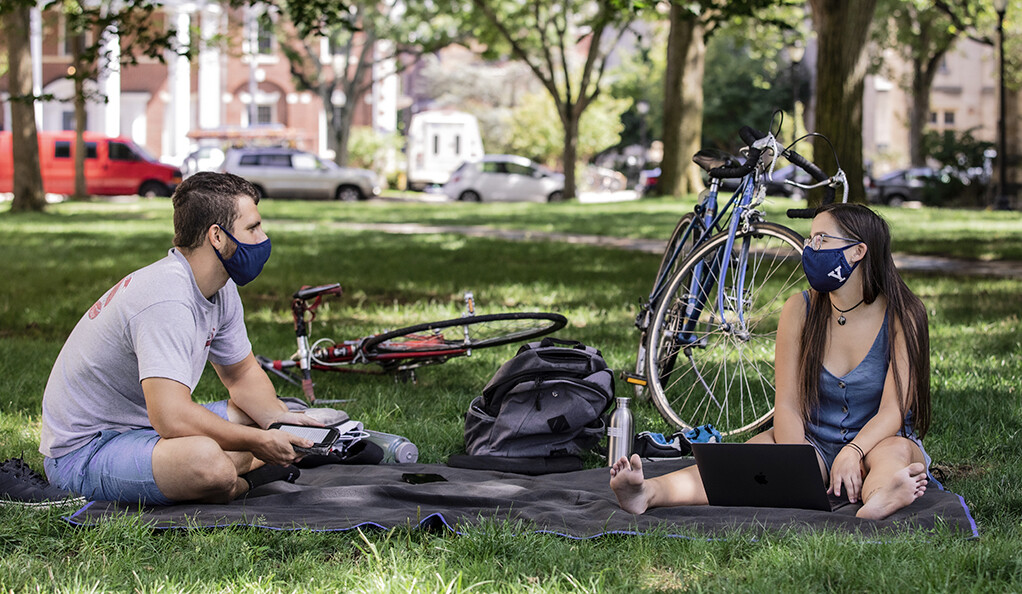
Yale News
New Haven is nicknamed the Elm City because it was once home to several different types of elm trees. However, in the 1930s, an outbreak of Dutch Elm Disease killed off most of the elm trees in the city.
Over the last few months, a prison reentry organization called EMERGE Connecticut has been working to bring elm trees back to New Haven. EMERGE has been working with the Yale-affiliated community forestry organization Urban Resources Initiative, or URI, to plant 300 new trees. At the request of community members, crews of recently incarcerated individuals have spent this season cultivating greenery free of charge. That greenery includes new hybrid elm trees — which are resistant to the disease that once wiped them out.
“It has just become a really great partnership between EMERGE and the URI,” EMERGE’s Executive Director Alden Woodcock told the News in an interview. “Folks coming home from incarceration are getting a chance to work with Yale and expand their skill set, get some training and make a little money.”
The tree planting project is an environmentally-conscious effort to help restore the tree canopy to New Haven. According to the URI’s website, trees are known to remove particulate pollution from urban air, improve overall air quality and create natural cooling for surrounding houses.
The URI, a Yale organization linked to the School of the Environment, allows city residents to request a tree to be planted at no cost to them. The URI does so under the condition that residents promise to water the tree during its sapling period. Representatives of the organization did not respond to the News’ requests for comment on his story.
“Planting trees helps improve the aesthetic and property value of a neighborhood,” Viktor Kagan ’24, an active environmentalist on campus, said. “So, it’s extremely beneficial to the viability and beauty of the city.”
EMERGE Connecticut is an organization that supports previously incarcerated individuals with reentering their community and “mak[ing] a successful return to their families as responsible members, and to their communities as law-abiding, contributing citizens,” according to the organization’s website.
EMERGE aims to lower recidivism and increase employment and educational opportunities for those individuals. The organization works towards this goal primarily through programming dedicated to destigmatizing mental illness and trauma, increasing literacy and numeracy and teaching parenting and life skills.
Recently incarcerated individuals at EMERGE spend about 40 hours per week at the center. Twenty-four of these hours can be spent working on projects including the tree planting crews. The remaining 16 are dedicated to program participation.
“This [program] helps to stop a cycle of trauma,” Woodcock said. “It gives people an opportunity to co-create some healing, to co-create a place to pause and begin to process and heal from the process of incarceration and what may have happened prior to incarceration.”
Data shows a correlation between participation in EMERGE’s programming and recidivism rates. According to the organization’s website, individuals who complete the program have a 14 percent recidivism rate. In general, according to Woodcock, Connecticut has a 47 percent recidivism rate.
EMERGE also works closely with the Yale Urban Philanthropic Fund as well as with Dwight Hall. Woodcock said he encourages students to use these systems and fundraisers to help in any way they can.
Students involved in organizations pushing for prison reform, including Annabella Lugo ’24, also highlighted the importance of a mutual connection between community and previously incarcerated community members.
“Forging a connection with the community is crucial to preventing recidivism,” Lugo told the News. “In terms of prison reform, these types of partnerships focus on what reform and abolition movements alike are seeking, which is rehabilitation from the justice system rather than retribution.”
According to EMERGE’s website, 70 percent of individuals who complete the EMERGE program exit to employment or education, with 76 percent of them still working a year later.
Liz Carter | liz.carter@yale.edu







